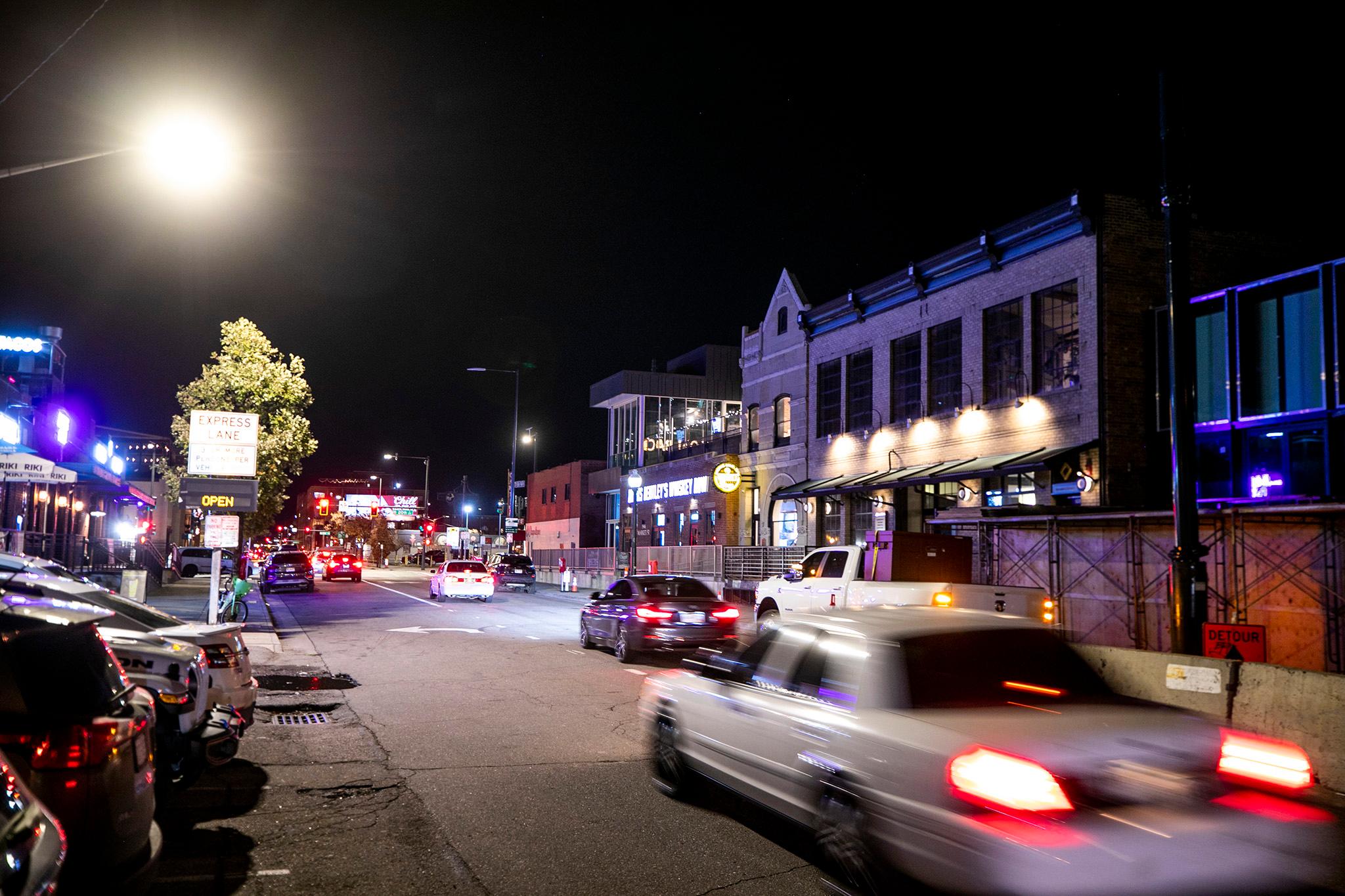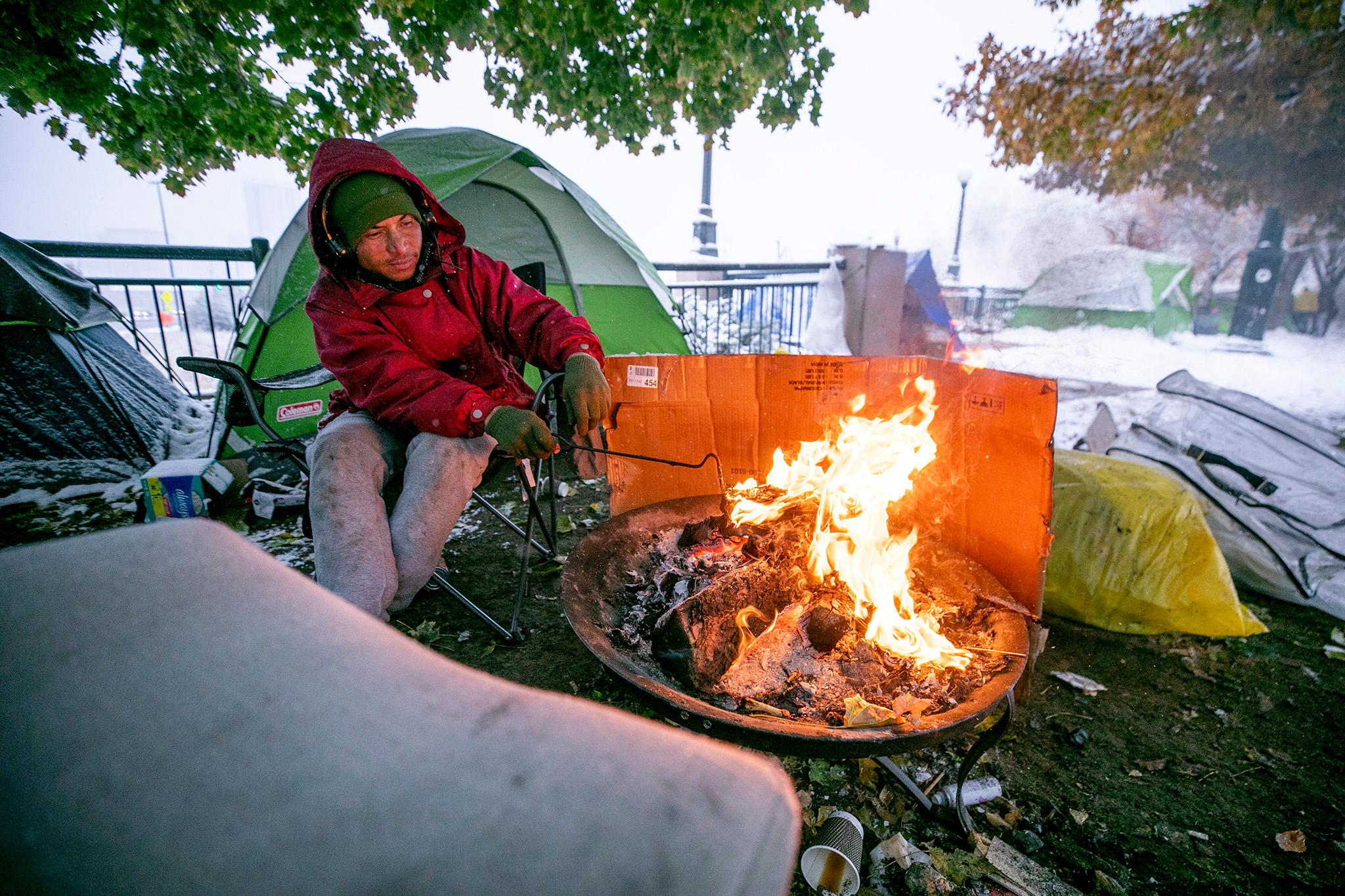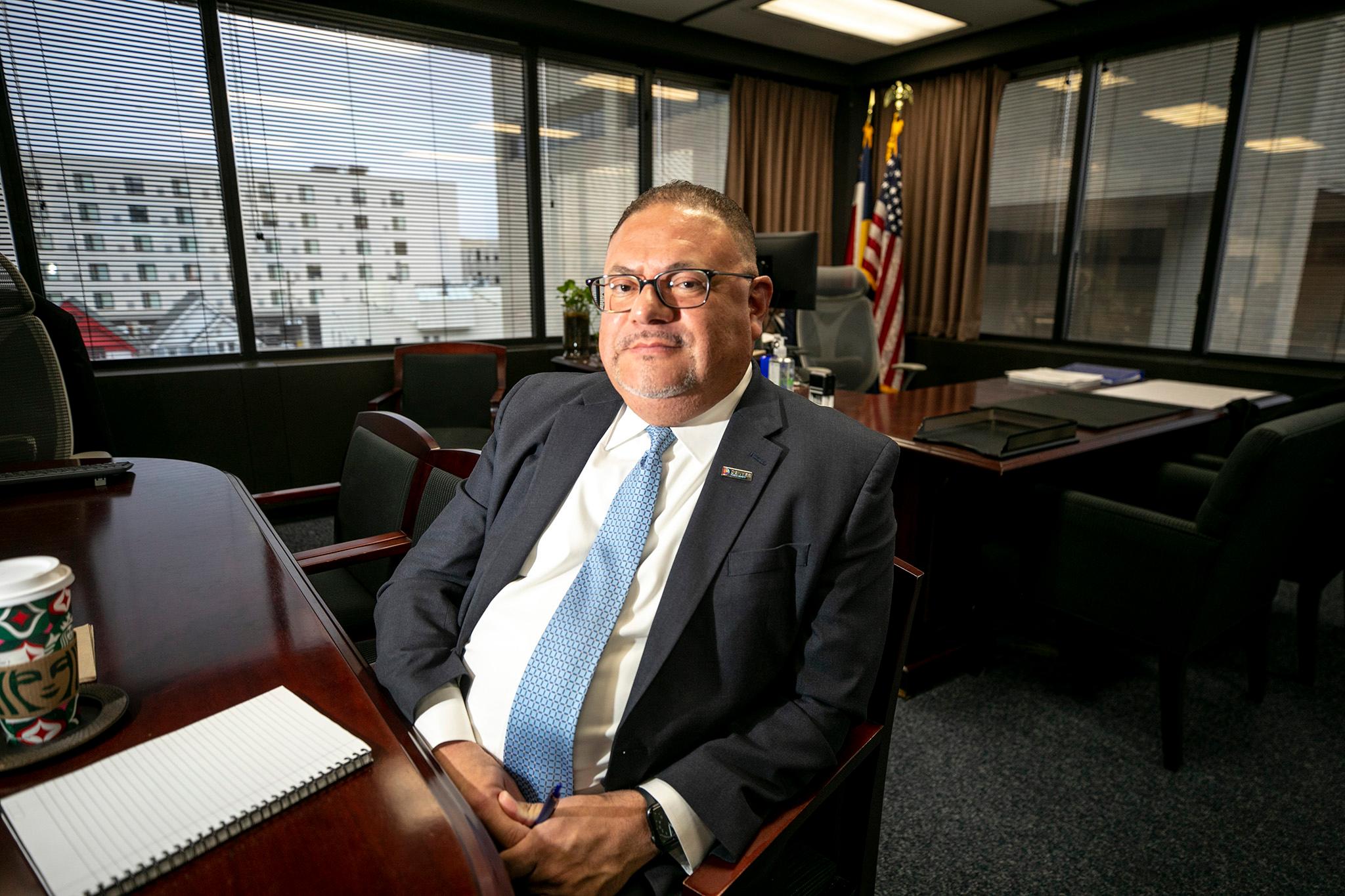Mayor Mike Johnston announced Tuesday that he's formally asking for two key safety officials, Denver Department of Safety Director Armando Saldate and Denver Police Chief Ron Thomas, to keep their jobs.
Prior to the announcement, both men, who were originally hired under former Mayor Michael Hancock's administration, said they'd like to stay on in their roles. Both will need City Council approval to stay in the roles permanently.
Council members Amanda Sandoval, Sarah Parady and Shontel Lewis told us they were waiting to decide whether they'd support the re-nominations. Lewis, in particular, said she would vote "yes" if she got a sense that the men were receptive to some residents' "desire for a different relationship with our communities and policing." Council member Chris Hinds said he is supportive, saying it would be "good to have some stability in those positions," given so much change that's come with the new council and mayoral administration.
Saldate, who oversees police, firefighters, the city's Support Team Assisted Response (or STAR program), told us last week he'd be "honored" to continue in his role. Here's where Denver's top safety official sees things going in the next year or so:
Addressing violent crime doesn't always require police, he told us.
Per capita, Denver police registered more reported crimes last July than in any other month since January 2018. It's something Saldate said is a priority for his office, though he said pinning causes on that trend is tricky.
Some have blamed pandemic stir-craziness and economics for the increase. Others - including former Mayor Michael Hancock - have suggested Colorado's embrace of personal recognizance bonds could be related. Saldate said he's sought council from academics studying the problem, and isn't sure any one thing is to blame.
"I'm not there yet. I'm not going to say that any of that. What I think - and from the literature I've seen and the data I've seen - is it's a little bit of everything. I think obviously the pandemic had a role in it. I think our economics situation, inflation, cost of living, just everything - the expense here has played a role. I think that people's mental health and just coming out of the pandemic. I believe that we're just in a more conflict oriented space."
Whatever is behind that conflict-orientation, he said, one thing is clear: people can easily kill each other when things do boil over.

"What we've seen is the accessibility of guns. You add in all those things that are going on - you add in fentanyl, you add in methamphetamine and fentanyl problem - and you see that there's a lot of things that have been put into this that I think have aggravated to the situation," he said.
Residents, he said, tend to think that sending cops in to crime "hotspots" is the way to go, but Saldate said he leans on other departments to help stem opportunities for violence.
"That's not what we're doing. In fact, it's a much more deliberate effort to bring in other types of services, other types of engagement. City services like Parks and Recreation. City services like [the Denver Department of Transportation and Infrastructure, for] lighting, those types of things," he said. "What we're trying to do is just be more thoughtful around our approaches in these places to try to reduce violent crime."
Hiring more officers is still a priority, Saldate said. It was something Mayor Johnston spoke about on the campaign trail, and something Saldate said his office has been working on since he took office.
"Our 911 staffing is the best it's been in quite some time, and that's because of the intentional efforts we've done to try to increase staffing there," he said. "Our last police academies have been bigger and better, and we've had some full academies. So we really do feel like we're turning a corner on that staffing."
Saldate expects the camping ban will be used more often as Mayor Johnston's administration "closes" more tents from sidewalks.
"That's really our decommissioning plan," he told us.
He added that enforcement of cleared areas has already begun, like the camp near the Governor's Mansion that was closed in September.
"That place is now permanently decommissioned," he said. "We stayed, holding the area with patrols and things, and it's basically telling folks, 'You're not allowed to camp here,' utilizing and pointing either to trespassing, if they're in violation of trespassing, or the camping ordinance. That is the plan. If we're going to effectively remove camping, we have to enforce our ordinances that are on the books."

Denver's urban camping ban has been controversial since its conception a decade ago, though it's been rare for people sleeping outside to actually get a camping ban ticket. Almost all encampment sweeps in recent years have been carried out under the auspices of clearing encumbrances in the public right of way, or to address public health concerns, not the camping ban, which would result in individual tickets for people violating the ordinance.
Still, advocates for people who sleep outside have grumbled that many of former Mayor Hancock's policies and shot-callers have carried over to Johnston's administration, especially as it relates to how Denver enforces rules like this.
Saldate said he's hoping to see a drop in calls to 911 and 311 as encampments are shut down, which might free up officers to focus on the aforementioned violent crime issue.
"I monitor the police radio a lot, and monitor the call volume a lot, see the data. Responses to encampments, calls for services at encampments and camp-related behavior is very high. It's a high majority of our calls," he told us. "What we're hopeful for, and what we really think the data will show, is that when we decommission an encampment, hopefully the call volume will go down there, and that these folks will now transition to a managed shelter or managed micro-community. And what we do know from the data is managed micro communities have a very low call volume for police response."
For unsheltered migrants, Saldate said his officers will probably keep responding to help kids who were booted from other shelters, unless Denver lands more help from the feds.
Police officers, STAR workers and Saldate's Street Enforcement Team have all worked to get migrant families inside, he told us, after they've had to leave other city-funded facilities. It's something that's played out over the last few months, as cold weather has made the situation more dangerous.
Yes, Saldate said, he can see the absurdity in the cyclic nature of this system - people moving from a taxpayer-funded hotel into the hands of taxpayer-funded police - but he said there's not much room to maneuver at the moment. Does it need to be this way?
"I don't think it has to be. Unfortunately, that's what it is. But I don't think any of us are satisfied with that," he told us. "That is frustrating and it's a byproduct of us not having enough resources here. And this also is occurring parallel to the effort that we have to house a thousand of our unhoused neighbors by the end of the year. So we're all operating with the best intention and trying to get people off the streets and into shelter, but we are limited."

To that end, he said Mayor Johnston "stepped up," asking the White House and Congress for more funding and easier pathways for work authorization.
In the meantime, he said, Denver must try to make progress on all of these interwoven issues, even as cabinet positions like his go up for final approval
"Every day we're sitting at the table, trying to figure out how can we still accept people, still welcome folks here, get them in shelter, get families set up for success here - and then also help our unhoused community that's been here in Denver," he said. "This is going to be a very busy time. We're all bracing for it."











